I’ve had the same conversation countless times. It’s always with downtown residents who appreciate Durham for what it is– a unique, mid-size city that features much of what is great about North Carolina from the food, to ample job opportunities, to easy access to nature.
Durham provides this way of life in a somewhat dense, walkable environment with excellent transit access for the region’s standards via the GoDurham/GoTriangle bus system and Amtrak. These folks enjoy walking around downtown and remark they would love to ditch their cars, as they either telework or commute to an area easily accessible by alternative methods of transportation, and all the amenities they would need are within walking distance…
Except for the grocery store. Just ask Reddit:
Downtown Durham, for all the amenities it offers, does not have an everyday grocery store. What does this mean exactly? Think Harris Teeter, Food Lion, perhaps even Whole Foods. All these grocery stores are within two miles of downtown, just beyond the reasonable walking distance for groceries. This is as our neighbors in Carrboro and Raleigh have at least one downtown grocery store, while downtown Charlotte is home to two grocery stores that fit this description.
Instead, downtown is home to Bulldega Urban Market, a clever spin on a bodega-style grocer that offers a limited selection of mostly local-based food brands for a hefty price. Needless to say, establishments like Bulldega are a more efficient option for grabbing a couple ingredients on your walk home than for your weekly grocery run (if you can afford to spend $5 on a carton of eggs).
Bulldega Urban Market in Durham, North Carolina.
Our grocery shopping patterns have shaped into the latter throughout much of the United States, as grocery stores have incentivized more shopping through buy-one-get-one deals and bulk/family-sized packaging. Consequently, consumers require a car to carry home their bulk groceries, and thus the infrastructure to park their cars while they’re inside shopping, driving these grocery stores away from our congested downtown spaces. This is evident from the closest Food Lion to downtown in Durham’s Lakewood neighborhood, which hosts a sprawling, under-utilized parking lot that is hostile to pedestrians.
Lakewood Shopping Center Food Lion in Durham, North Carolina.
In contrast, Bulldega does offer a glimpse into what grocery shopping patterns could look like here. Smaller markets, in theory, provide the opportunity for folks to swing by en route to another destination to pick up just a few items throughout the week. You can pick up a bottle of wine on your way to visit a friend at their apartment, or run over from your home to pick up an ingredient you might’ve run out of. This model also prevents the spoiling of food that is more likely to occur from a weekly grocery run and keeps dollars in the community depending on the grocer and the products they’re selling.
However, Bulldega is not a viable option for most folks living downtown because of its prices. For those seeking local grocery alternatives that can afford to do so, I would recommend a medley of the Durham Co-op Market, which offers a wider variety with marginally better prices, and Part & Parcel, a package-free refill store that sells staples ranging from grains to seasonings to cleaning supplies to local products.
Even these options are somewhat pricey compared to a chain grocery store. This issue is compounded for those without access to an automobile or who live in areas of Durham considered to be food deserts; I wrote on this very issue last year, which is an important factor in the discussion around grocery store accessibility.
Our grocery stores need to be accessible from both a mobility and socioeconomic perspective in order to boost the health and well-being of our city’s residents. Grocery store supply is a driving force behind car dependency in Durham and other cities alike. Perhaps through this vision, downtown Durham can solidify itself as a place where one can live and thrive without requiring an automobile.

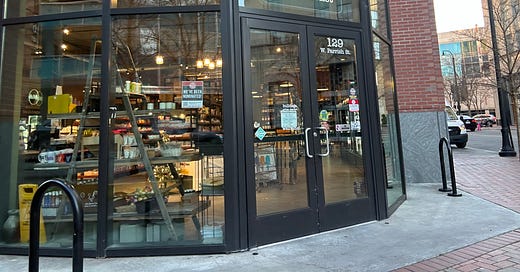


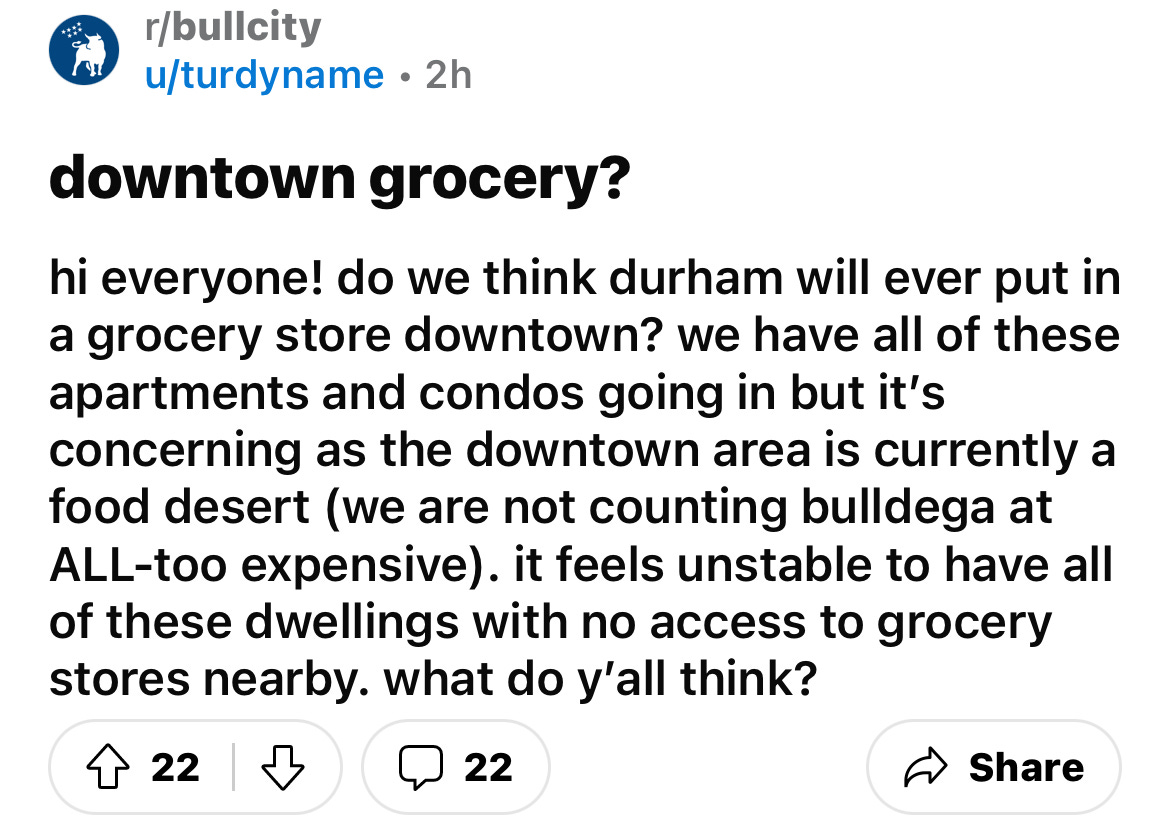
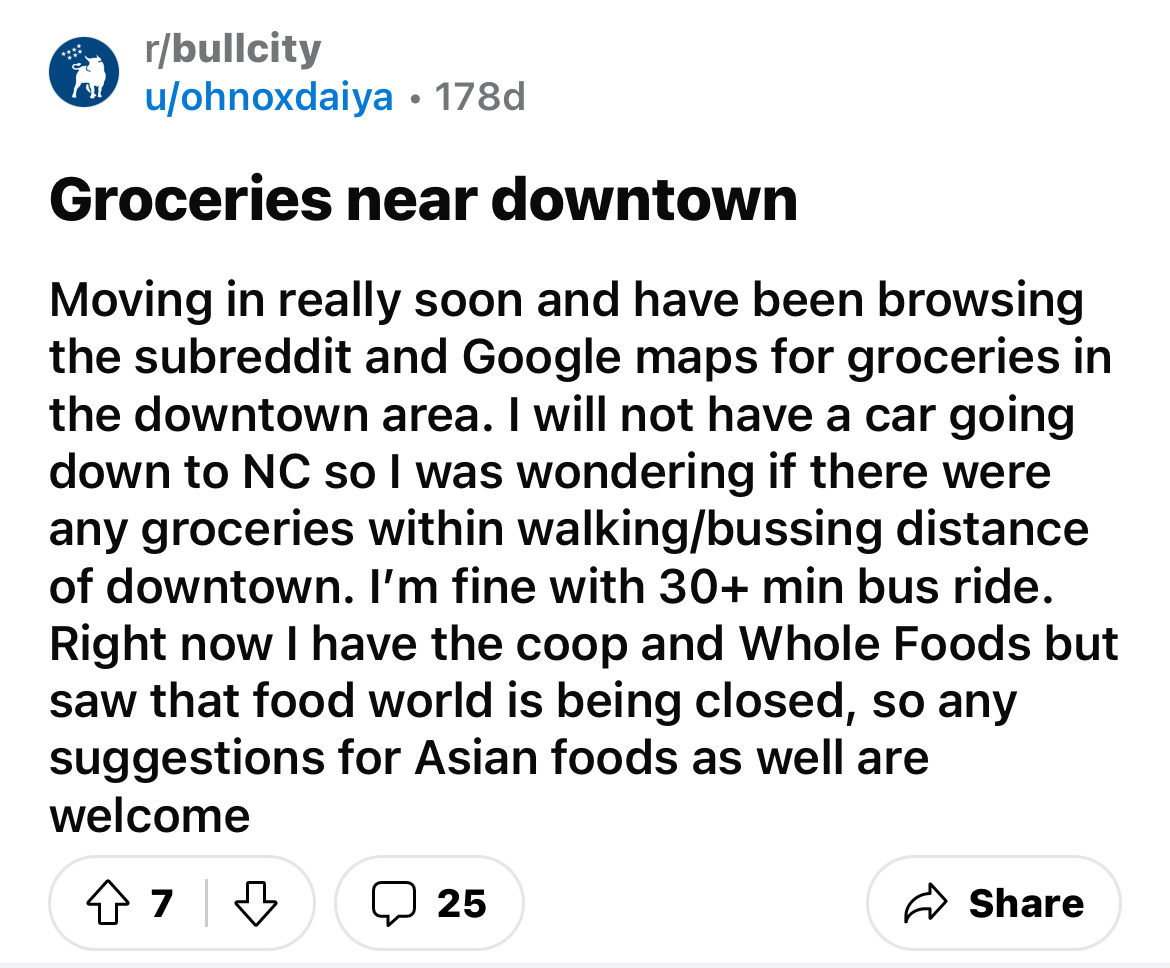
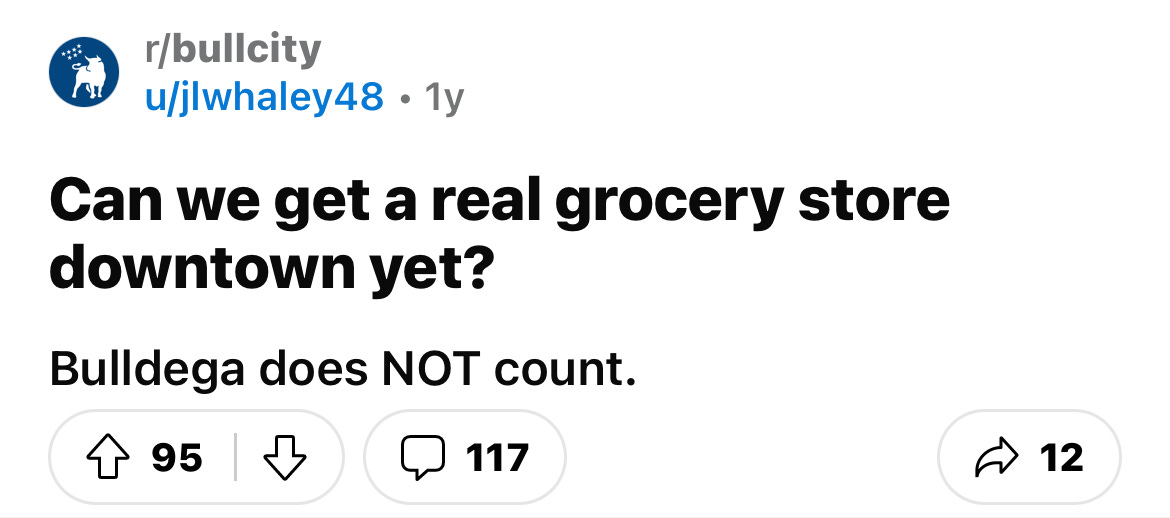
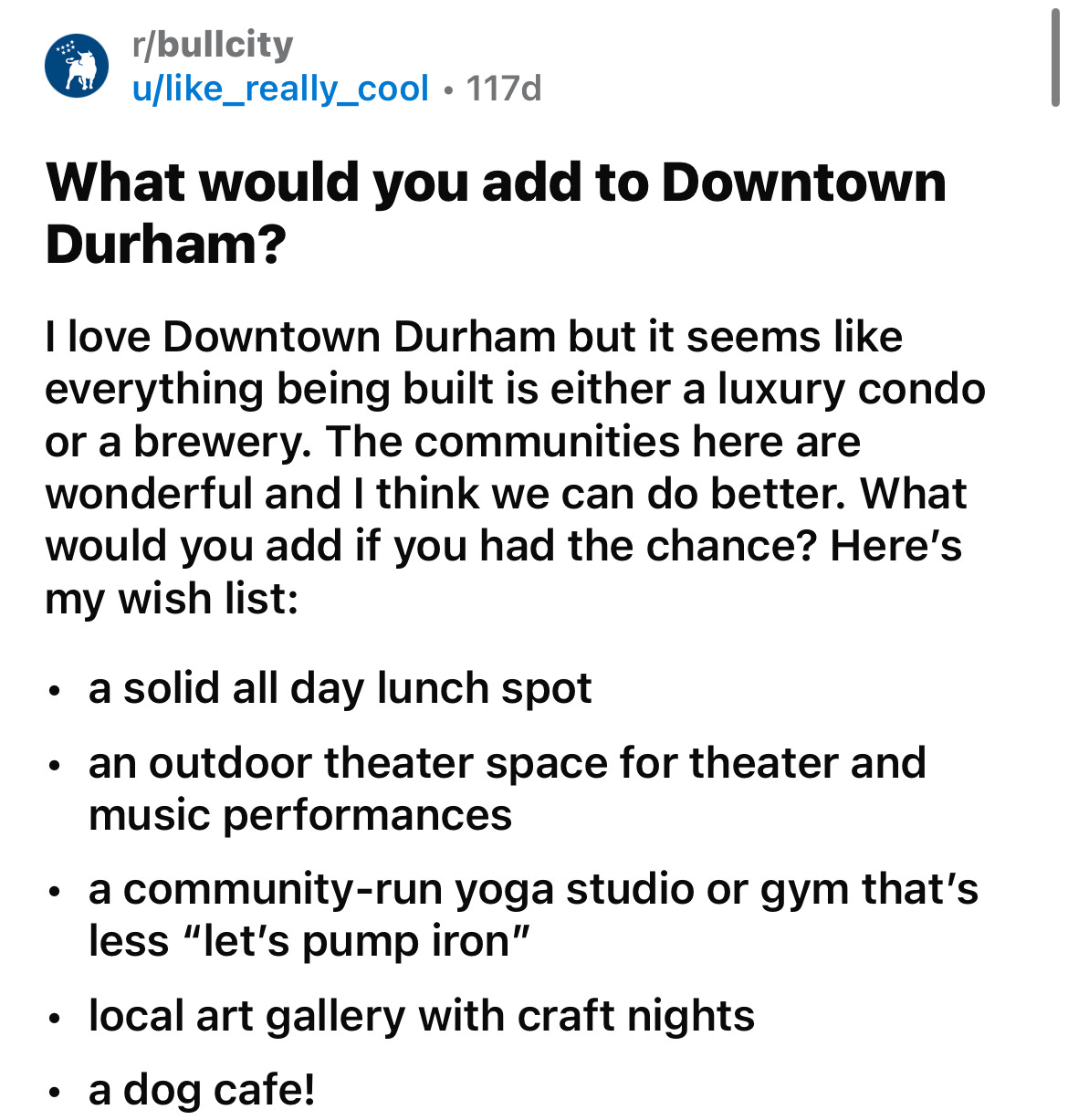
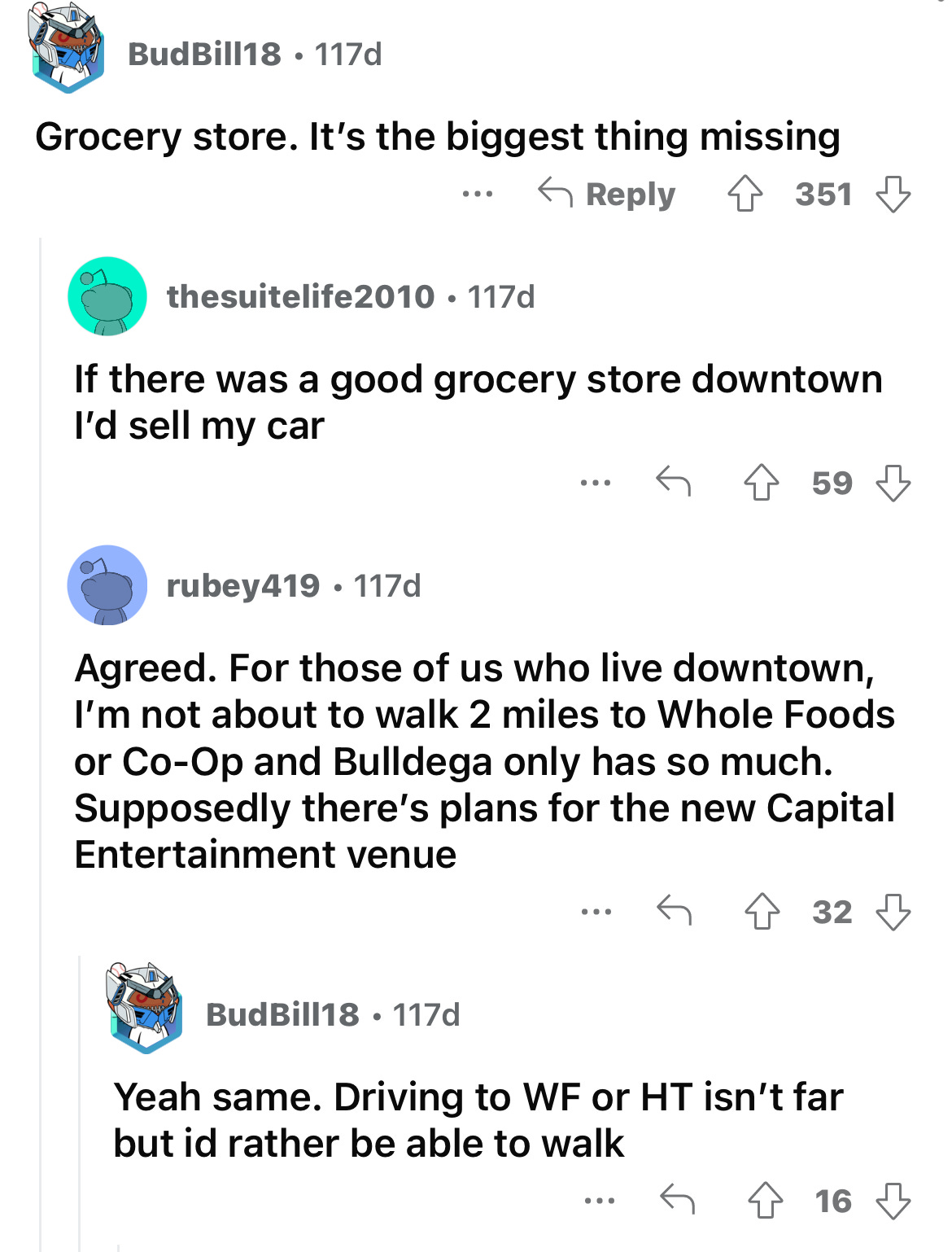

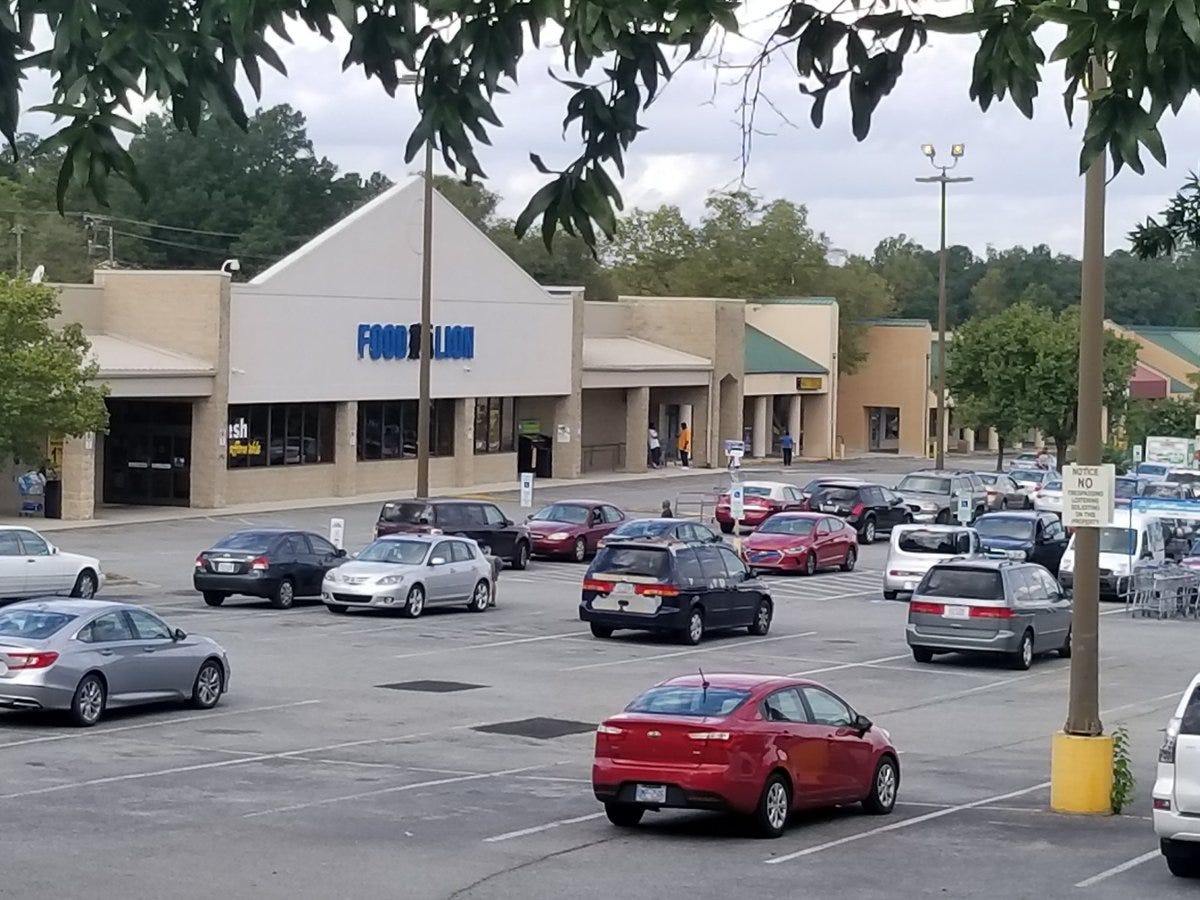
Still an issue. Still incomprehensible. Semi-luxe apartment everywhere but no bodega to buy a bag of chips and a soda anywhere. Thanks for mentioning how under-utilized — and dangerous — all the vast parking lots are. There needs to be *some* kind of plan for addressing the food desert and the sprawling heat trapping empty parking lots everywhere — while demanding people to pay $3 hour to park downtown.
while living and working in Italy for a few months last year, I enjoyed walking to the supermarket almost everyday - nearby, great selections and if you went every other day you could carry home everything you needed!